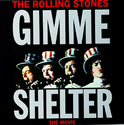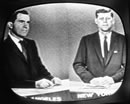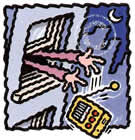Hot topics click link for more
In All Things Digital
 Global disruption over the last year and a half has renewed interest in economies, not to be confused with economics. Keen observers, between breaks for Zoom conferences, are conjoining random consumer behaviors with widely available technologies through the fractured prism of value and aspiration. Cryptocurrency meets boredom, insecurity and hubris. The term creator economy has been invented to capture the imaginations of those without.
Global disruption over the last year and a half has renewed interest in economies, not to be confused with economics. Keen observers, between breaks for Zoom conferences, are conjoining random consumer behaviors with widely available technologies through the fractured prism of value and aspiration. Cryptocurrency meets boredom, insecurity and hubris. The term creator economy has been invented to capture the imaginations of those without.
Every medium has a preferred technology. When the world was far different that technology was often proprietary. Indeed, as the internet democraticized information, loosely defined, every medium had to confront that significant change in platforms. For users, that shift has been rather painless. For media concerns, changing gears has been fraught and expensive.
The news isn’t good and it isn’t fun. Yes, some people still read. Others watch and listen. What everybody does, says the conventional wisdom, is share, like and such. There isn’t a conversation like the post-modernist journalists want. They still expect peace, freedom, togetherness and the free flow of information. It’s a transaction that exacts a price.
Elections are intended to bring out the best. All pretence of this ended this century as elections have become disruptive, chaotic and violent as well as indecisive. Villains have been located. It’s the news media. It’s the internet. Authoritarians agree.
The chocolate aisle in the local grocery is a destination (at least in Switzerland). Who doesn’t stop there, contemplating a sweet treat? It’s a long aisle; nothing but chocolate. There are hundreds of choices, packaged appropriately. We linger, contemplate, examine. How many just walk away, can’t make a decision and head for the health food before checking out?
It is a point on a matrix, disinformation. There is no straight line from misinformation, common mistakes, through to malevolent propaganda. Nor is there a curve. There are points called fake news and hate speech. In this matrix, points interact and mutate. And like a virus, it becomes stronger and lethal.
The search engine remains a major innovation of digital transition. Before the mid-1990s, crawling, indexing and ranking information were functions limited to librarians with card boxes. The world is well beyond that now. Give thanks to all those tech scientists who invented the languages that grew bots.
Great theorists of business and product cycles are rarely proven wrong. There is always a beginning and an end. Innovation is the typical starting point. Death, or bankruptcy, is the end. In between, these ideas just go through enhancements. Virtual conferencing app Zoom is a good example of innovation born of perceived necessity. Its success could be transient, like the hula hoop. The printed newspaper, therefore, is taking the long, slow crawl toward obscurity. Newspapers have been around for a couple of centuries.
 A white dwarf is a star nearly out of fuel. They were once red giants. Black holes are fonts of anti-matter, devouring anything it their path. Red giants are big tasty gas balls. Black holes suck them dry, so to speak, until they dwindle into white dwarfs. The black hole always wins and the white dwarf ends as a stellar corpse. So it seems is the destiny of the digital native.
A white dwarf is a star nearly out of fuel. They were once red giants. Black holes are fonts of anti-matter, devouring anything it their path. Red giants are big tasty gas balls. Black holes suck them dry, so to speak, until they dwindle into white dwarfs. The black hole always wins and the white dwarf ends as a stellar corpse. So it seems is the destiny of the digital native.
Big bandwidth has been the holy grail for the entire digital media universe, currently the entire media universe if not, well, the whole universe. Not all that long ago, bandwidth took to steroids thanks to genius scientists. Bandwidth, in the realm of physics, is the same for internet and mobile data delivery. Telecoms are in charge of this.
When the digital realm first beamed everything, everywhere all the time, its creators and adoring fans heralded a new dawn. Alas, Aquarius it was not, more like Dante’s Inferno. Grifters, psychopaths and miscreants came along, soiling the beauty. And that was before social media arrived.
Much in the post-modern age is shifting. That is a feature, not a bug. Some, adhering to Orwellian logic, admit the post-truth era has arrived. Get over it, they say. Only a fool would build a house on shifting sand, say the ages.
Not everybody likes the offerings on television, cable, free-to-air or streaming. It’s OK. Watch what you like, right? Some TV shows are offensive. Don’t watch. Some are stupid. Again, don’t watch. Unfortunately, there are people out there who want to have a word about TV shows they don’t like. Criticism is just fine, until it crosses that line.
Not to be confused with the real world, the social media world was aswirl in the October winds. Those winds, for watchers peering from relative safety, just roared across Halloween unleashing new terrors, all the while laughing sardonically. The best known social media platforms, usually, enlist reasonably articulate executives to project warmth, sincerity and empathy. These are not the attributes quintessential to vampires, werewolves and ghouls. But, it makes a good movie.
The endless - and useless - war between legacy news publishers and the tech world has several battlefields. "Both sides are good people," to quote a well-known media phenomenon out of context. News, and the publishers who deliver it, earned high esteem for informing the public. With that came lots of money. That started slipping away half a century ago. By the time publishers noticed, internet technologies had redesigned distribution of information and just about everything else. That, too, came with lots of money.
Those who study media economics have made interesting discoveries about paywalls, the seemingly indispensible cookie monsters meant to extract cash. Publishers love paywalls, generally, because their shareholders want more money. Readers are less excited, particularly those desiring access to multiple sources.
Shocking, just shocking research is pouring in about the real world of television. Media watchers are completely gripped. Broadcasters are on the edge of the seats. It’s like watching Game of Thrones.
The delivery of video to homes is fraught with anxiety, certainly among those accustomed to providing that service. Consumers, particularly home consumers, love their television. Without delving too far into the sociological, television provides a bit of entertainment, a bit of information and a bit of noise in the room. Digital technology came along, upending the choice process, and created a new social process, bigger than the living room.
Where elections and social media intersect the result, plain and clear, is disruption. The path to disinformation, fake news and hate speech is Autodromo di Monza through the internet. The track is unforgiving, the crashes spectacular and people turn out to watch. Of course, the sponsors are pleased.
Most every enterprise of modest means reaches an inflection point, usually financial. Particularly vulnerable are those with big, well-known benefactors. Venture capital firms know this and regularly exact their price. Business strategies of the greater and lesser often do not coincide.
Thoughtful predictions for the coming year in digital journalism and publishing have appeared in recent days. As with recent years, the insight is mostly doleful, evidence persuasive and solutions painful. One thing stands out among all these predictions: money. Easy money from advertising, paywalls, billionaires or, even, governments is not going to save news publishing. Some of it can't be saved, some shouldn't.
Psychology plays an outsized role in business, more so in media. With fad and fashion studied as seriously as physics, the media sector looks for flashes of light and, of course, darkness. Those visions are decorated from the sidelines; the advertising people, the investment bankers, the shareholders, the politicians. Many thrive, truly, on these flashing lights, a certain relief in the chaos. Psychologists have a name for this.
Most media operators know that a key to success is staying a half-step ahead of the audience. Being a whole-step ahead, figuratively, risks confusion. People will seek familiarity. Following by a whole-step is worse. People will get bored and race to a more interesting alternative. Knowing where, exactly, that half-step is at any given moment is no mean feat.
Social media investors are just like investors in any other business sector and stock traders are their foghorn. All growth - any growth - is good. Anything else, bad. As they mature dividends will drive their being. For publicly traded companies this is a problem.
The search for new ways to squeeze attention from each and every human never ends. Add to that, curious people endlessly seek to satisfy that certain craving. The media world is in the midst of all this. Fortunately, algorithms have not - yet - replaced human senses.
The internet upended the media world as the new century arrived. Social media came into full view a decade ago. Nothing has been the same. People around the world liked, literally, these platforms, which promised to connect everybody to everybody else. The advertising people liked this very, very much. The data collected by cookies, bots and algorithms looked like a gift from the gods. It was not.
Every good idea, media included, germinates on the web. But the digital marketplace is not without pitfalls. For news and entertainment pure players - web-only media - the inevitable Darwinian shake-out is always just shout away. Oh children, woe be onto you for disappointing the investors.
Fake news, investigators far and wide have concluded, is a big problem. Government leaders, generally, agree. Solutions they have proposed are, unfortunately, so analogue. This video game has pivoted to algorithms.
Those who reign supreme in the digital realm see things differently. It is the lofty perch, the money, the power, not to forget pizza on demand. Clear air is everywhere, turbulence under control. They eat what they want. Betting on that bubble bursting is a fools game.
Pressure is on media/tech giants to do something about fake news, fake ads and every other fake thing. Applying the tourniquet are consumer protection advocates, advertising support groups, publishers, broadcasters and the politicians who love them. Big online providers, insisting they are but technology companies and never, ever, ever media providers, appear a bit disoriented. After all, the money keeps rolling in.
 Elections are media events and have been for decades. Voters are, in democracies, the ultimate arbiter. Each one processes election information uniquely; agreeing, disagreeing, dismissing, engaging or any possible combination. Campaign strategies focus on motivating as well as discouraging and sometimes confusing. Mass media tools are important, new media tools vital.
Elections are media events and have been for decades. Voters are, in democracies, the ultimate arbiter. Each one processes election information uniquely; agreeing, disagreeing, dismissing, engaging or any possible combination. Campaign strategies focus on motivating as well as discouraging and sometimes confusing. Mass media tools are important, new media tools vital.
A notable force in the rise of the World Wide Web has been its facility to engage people. Part of that is due to the ubiquity of internet and now mobile access. But people also just like to share their thoughts, personal and otherwise, and those of others in a rather non-binding way. Anybody can have a blog, website or pages on social media portals and invite others to their world, except in China and a few other places. Some of these are silly, some serious, a few actually become famous and make money. All of this could be coming to an end.
Conventional wisdom holds that television, by and large, has reached a developmental pinnacle. The mass of TV output available worldwide would choke that supermassive black hole looming out there sucking up all light and energy. Viewers, however, mostly see what they’ve seen for the last three decades; series, films, sports and news framed the same. Gravity is irrefutable.
As the digital revolution matures no one is left speechless. We share. We shout. We are connected. We are confused. Immense wealth and endless utility have defined the digital dividend along with a poverty of opportunity and understanding. These are still big days for fake news.
Social media portals have always been about ambition, usually the dreams of founders and investors. But products and services become defined by their customers, none more in the digital age than social media. Companies responding best to this engagement become branding legends. Reading customers takes a good algorithm these days. Turning that into a successful business takes a bit more.
Very few really believe television is going away anytime soon. Its place in the world is writ large in indelible ink. The future is shifting, thanks to technology. Demography - the counting of people - is even more inevitable. Be nice to the Millennials.
Digital technology is unforgiving. Ones and zeros. Digital technology business is ruthless. The ones take all, no sharing. The zeros leave no trace, filtered out. Woe be onto those who expect a different outcome.
Disruptive as it has been, the digital dividend keeps on giving. Ideas have sprung forth like the gentle blossoms of spring. Some are more like weeds, growing wildly in unwanted places. All have been nurtured on a natural attraction to novelty and, of course, money. The response has been beyond the wildest dreams of the wildest dreamers.
 New media technologies have performed miracles before our eyes. Pictures, stories, words and sounds are delivered to billions with ease unimaginable just a few moments ago. Information, content or spam, all of it streams ever faster, bigger, brighter and louder. None of this is a miracle; no need to call the Vatican. It’s just physics.
New media technologies have performed miracles before our eyes. Pictures, stories, words and sounds are delivered to billions with ease unimaginable just a few moments ago. Information, content or spam, all of it streams ever faster, bigger, brighter and louder. None of this is a miracle; no need to call the Vatican. It’s just physics.
Technology is better than work. It has a way of expanding to fill not just all available time but every possible space. The great technology heralds report this as transcendent progress, a notion appealing to financial rainmakers. Where technology goes money flows. That explains the sight of so many people holding buckets while dancing as fast as they can.
Ambition is the trait most rewarded by investors and customers, the difference only slightly nuanced. Technology companies have entered the media sphere - Netflix and Amazon, not forgetting Apple’s venture into music streaming - with the gleeful admiration from investors. Media companies have been on the back-foot trying to catch up with the techies. Consumers, of course, just want what they want right now, preference given to brands they know.
The nature of things is that wonderful ebb and flow between adapting and extinction. This is not a value judgment, just an observation. The media sphere, itself thereof created, has grown - maybe grown crazy - being tossed by tides and waves, most recently digital. Ain’t it fun?
The trek toward the digital dividend has been one of discovery. There’s trial and there’s error, new worlds for some. Consumers are now widely - some wildly - engaged in mobile media making obsolete platforms once considered unassailable. The corner kiosk has been replaced by Google as news channels are falling to Facebook and Twitter. Full speed ahead.
If there is any message from the rise of media by subscription it is that the business universe has no patience with “digital pennies.” People will pay, as always, for the cool thing. But the trick is not to invent it. That’s been done. Reaching the young and restless with smartphone in hand means giving them entry to something they can only buy. The business is clear.
Media technology is constantly reshaping. Code-writing geniuses find new tricks to adapt people’s behavior for fun, profit or the attention of investors. Fewer business plans are written for advertising revenue these days, now that media buying is automated. Paywalls - in various forms - are like meters on oil wells.
 Chasing the digital dividend comes at no small expense. Costs always seem to rise with each new exciting advance in technology. For years, decades even, the chorus repeats “the future is digital,” arrival expected any day now. As with any investment there’s anxiety. And the best cure for anxiety, say the doctors, is more money.
Chasing the digital dividend comes at no small expense. Costs always seem to rise with each new exciting advance in technology. For years, decades even, the chorus repeats “the future is digital,” arrival expected any day now. As with any investment there’s anxiety. And the best cure for anxiety, say the doctors, is more money.
Major online platforms have been inching toward the publishing realm, off and on, for several years. Content producers are meeting this trend head-on, more or less, by forming alliances to bid-up negotiating leverage with media buyers and, to some extent, readers and viewers. The recent flurry is but the next round of big dogs circling the red meat of advertising.
At first it was confusing, with many in the media realm eager to dismiss. Then there was the grasping and gasping phase; the new and different always attracts the curious and repels those with better things to do. Eventually there is a point at which the folks just do what they like. The digital world moves in evermore mysterious ways.
The development trajectory for digital radio broadcasting through this century has been anything but linear, exponential or in any way adaptable to a nice presentation graph. Hyperbolic forecasting has been, if anything, a major block in the road. Through their authority over spectrum allocation and, not insignificantly, capital expenses of public broadcasters, governments have considerable influence.
Imagination is not something that can be bottled up and sold over the counter. It is impossible to contain, knows no boundaries, accepts few rules. Those who try always fall short simply because competitive imagination a force that binds us to human nature. It can be very frightening… and that’s good.
Anticipation is a powerful marketing motivator. Put a little wait-time ahead of a new product or service launch – even a service upgrade – and interest builds, chatter swells and customers ready their cash. Chatter, though, is unpredictable; critics and competitors have hashtags too. Clever marketing people know this and plan carefully.
In this convergence of media and technology predicting success is tricky. Some might call it a fool’s game. Brilliant research and analysis aside, consumers can’t describe the next big thing. They’ll know it when they see it. Then, watch out.
Online advertising is certainly soaring. If the ad people are masters at getting their messages in front of people creatively, the media-tech companies are reaping rich reward by getting ads to pop-up everywhere in digital life. Big data – collecting, crunching and selling it on - is propelling it all. It’s more than a little creepy.
A little disruption in life is a good thing. That unexpected rain shower might cancel the picnic but the unpredictable has benefits. Being quick afoot helps, except in a flood. Then pure terror seizes the mind. What shall we do?
The inner workings of the internet bring to mind the proverbial sausage, ingredients best left out of polite conversation for such a delightful end result. Most people just eat and enjoy. Recognizing the internet as the most powerful global distributor of information since the invention of paper frustrates those with a deep need to control what people see, read and hear. A recent meeting on the future of the internet offered food for thought.
Around election time every politician squirms a bit. Campaigns are media events, messages of all sorts flying to and fro, crafted carefully by dedicated wordsmiths. Out of their control are the new media vehicles of disruption. It would seem, the little Twitter bird can turn even the most steely politicians to jello.
 Information by sound byte has long been a fixture of the news business. The sound byte has been replaced with the video byte, in turn replaced with the text byte and now the data byte. As with the old parable of the sound of a tree falling in an empty forest, information is lost, we presume, with nobody there to hear it. Information is now shrunk to metaphor.
Information by sound byte has long been a fixture of the news business. The sound byte has been replaced with the video byte, in turn replaced with the text byte and now the data byte. As with the old parable of the sound of a tree falling in an empty forest, information is lost, we presume, with nobody there to hear it. Information is now shrunk to metaphor.
There is a theory among professional mediators that negotiations precede only when all parties visualize failure as unacceptable. Time, then, becomes an object bigger than the table or anything on it. But time, like money, is never in abundant supply. And nobody wants to run out of either.
Innovation is often seen as coming from young minds at hard labor fueled by Red Bull and pizza. Some of that is true, particularly the pizza bit. As digital markets mature the other source of innovation is much less frantic and involves coupling needs and wants by finding benefits for all. Of course, everybody wants to get lucky.
Innovation is a slow slog, often in the dark. There are mountains and valleys to cross. The best route is always, shall we say, scenic; signposts hard to read. Those who persevere are rewarded richly.
Automobile industry designers are in a quandary. Car buyers recovering from the pinch of recessions have once again changed their expectations. Infotainment more than wheels seems to be the marketing edge. The next step doesn’t require much imagination.
A digital future has crept up on us. Like the weather there can be no denying. Some changes have come as storms, even tsunamis, lifting media landscapes or inundating them. Policy makers, however, live in the present where the future is always tense.
As year’s end approaches media watchers will wax metaphorical, gripping the larger zeitgeist. There is much to ponder. The waves, mostly new, and tides, often scary, inundate or, sometimes, cleanse. The words fly off the screen like bats shrieking in the dark.
 Now with economic crisis mostly averted, media people are returning to themes of old. Change has been so fatiguing. Media consumers just don’t understand. The internet remains a curse. And young people are as perplexing as ever.
Now with economic crisis mostly averted, media people are returning to themes of old. Change has been so fatiguing. Media consumers just don’t understand. The internet remains a curse. And young people are as perplexing as ever.
To repeat how profoundly the media world has changed with the development of information and communication technologies is akin to remarking how the sun rises and sets. Storms may brew but technology steadily, perhaps not slowly, moves forward. More people have more access to information faster and smarter than could have possibly been imagined at the first of the century. It is an unparalleled tool, rightly described as a web, pervasive in the lives of billions and undeniably fragile.
Adaptability is by far the most important quality for successful digital strategy. Enormous effort is required as those wishing to reach and be reached search for competitive advantage. It is no longer sufficient to produce for listeners, viewers and readers content that compels, entertains and informs. As media operators embrace all the digital technologies necessary to thrill users and enable revenue streams they are finding legal certainties no longer certain at all.
There is no end to media obsession with devices. Content, once again, is taking a second seat to distribution and changing with it. Keeping the attention of viewers, listeners and readers surrounded by multiple devices is a new distraction. What people see, hear and read has fundamentally changed.
Technology is magic, things appear and then disappear. Molecules, figuratively speaking, are sometimes rearranged. The media realm embraces all, except when it doesn’t. People, though, know what they want.
The rapid advance of mobile devices continues to dazzle related industry sectors from media to advertising and consumer electronics. The trend is clear: mobile is here. The rest remains a quandary.
Diplomatic negotiations carving out new international rules for the internet are underway in Dubai. Every media organization has a vested interest as the Web, crossing borders as it does, is the present and future. Don’t be fooled by the hype or the conspiracy theorists. Follow the money.
Digital broadcast television has arrived across much of the world. With it has come sharper pictures, more channels by a quantum and greater flexibility for broadcasters and producers. Television has been forever changed. It has been a struggle.
 Gather together any group of media luminaries these days and money is the first if not the only topic. From the media side the web remains the culprit, hogging the screens and not sharing. Outside experts, however, urge caution lest the golden goose be strangled.
Gather together any group of media luminaries these days and money is the first if not the only topic. From the media side the web remains the culprit, hogging the screens and not sharing. Outside experts, however, urge caution lest the golden goose be strangled.
Digital technologies have long been seen as a universal cure-all. The media world lingered, at first, before jumping into the swamp of ever-changing digital solutions. Not tethered to legacies, technology developers pushed forward, upward, onward. There’s a chip for everything. So fast have they moved that last year’s miracle is gone forever.
The blur between content and technology is giving the public a remarkable array of choices for entertainment and information. Rather than salting out some grand unifying business model platform providers are offering a little bit of this and a little bit of that. Content providers have choices, too; pick a platform carefully, take them all or, well, give up.
Digital radio development is, as it has been, up and down. Launches precede re-launches. Promotion has the appearance of trial and error. Supporters see one set of problems, detractors yet another. It’s a tough nut to crack.
Mobile devices are the big thing in media delivery. Smartphones have been the big thing since Apple’s iPhone arrived. Tablets are considered the next big thing. And there’s a rush to get in on the business.
The business side of social media is exciting for some, frustrating for others. It’s a card game, really. Players enjoy the thrills, even the spills. But it’s the house – bankers and VCs – who always wins.
Digital transition means different things to different people. Certainly, there has been opportunity for new products and services. With that has come unruly competition confounded by unsettled consumers. Attempts at bringing order to it all slip away in the digital paradox: transitions are chaotic.
 The fearful truth about the digital age is that advantage goes to those willing and able to exploit a hot spot. While some in digital media see every breath taking moment as new and brilliant, the longer view shows a more consistent and real world. The spirit of the times needs lots of spirit while times change slowly.
The fearful truth about the digital age is that advantage goes to those willing and able to exploit a hot spot. While some in digital media see every breath taking moment as new and brilliant, the longer view shows a more consistent and real world. The spirit of the times needs lots of spirit while times change slowly.
Mobile devices are the trendy thing. For consumers, smartphones and tablets are fashion statements. For content producers they are the must-have platform. Will some have egg on their faces?
Search engines and social networks have become the common media currency. More and more it’s mobile devices that form the common platform for the distributing anything that can be translated into 1’s and 0’s. The next development could be even more fun.
Forecasters and trend-spotters are rich with insight toward the end of each calendar year. Leaping into 2012 and beyond requires faith that an asteroid won’t slam into Brussels, Berlin or Buffalo. While economics continues to rule all media-related forecasts, technology is, again this year, the currency of the realm.
Internet technologies have upset business models to the extent that punishing is preferable to creating. While the public loves this orgy of innovation, rights holders can’t see the forest for the ICTs. Flexibility, says the boss, should be part of the plan.
From almost every quarter the ins and outs of Google attact attention. Google, of course, was formerly known for its search engine. Then there came advertising, mobile phones and, eventually, television. Every time they enter a new realm the earth shakes.
Serious people are studying online buzz. Seriously. And they’re coming up with answers to questions only the serious would ask. It seems, they find, online buzz can boost television ratings.
Decisions surrounding digital television transition have been studied, proposed, discarded, studied again and on and on and on. Engineering geniuses just keep inventing better, faster and smarter stuff. The complications are confounding, except the part about money or lack thereof.
Slowly but surely new media platforms have the undivided attention of media houses. That isn’t to suggest all are focused on using these tools to give people better products and services. Combine instinctive competitiveness with learning curve exhaustion and, well, some lose sight of the core purpose.
That the media sector failed to recognize the ascendant changes brought on by the digital revolution is, by now, a well-worn cliché. Broadcasters, publishers and other content producers have all been dutifully flailed for their dismissal, disregard, missteps and madness. Big ideas, it seems, take a long time to sink in.
 The concept of community in the online age has been a tough one for traditional media to grasp. It’s odd because community has long been the crux of media’s relationship with the public. But community thrives in the online world, sometimes rowdy, profane and, as we’ve seen, terrible.
The concept of community in the online age has been a tough one for traditional media to grasp. It’s odd because community has long been the crux of media’s relationship with the public. But community thrives in the online world, sometimes rowdy, profane and, as we’ve seen, terrible.
Digital radio was quick out of the starting blocks a decade ago, which seems like a century. Regional arguments aside, standards and platforms issues were easily solved. As the race was run, the course changed. Now nobody can find the finish line.
“Modern technology is totally out of control,” the UK’s highest legal authority announced, drawing to a close another week filled with news of the unleashed and unhinged. The faster it spins, though, the more it’s worth. And the world did not end Saturday.
In just a decade the device of choice for media and communications delivery has coalesced around the mobile phone. Hundreds of millions of feature phones, smartphones and, by extension, tablets are out there and quickly outnumbering any other delivery device. For the foreseeable future, at least, content producers can forget everything else.
The real mark of a product’s eminence is that moment when its kinks and goofs are mostly worked out and reality is at hand. For the internet, that moment arrived ten years after the dot com bubble burst. What was born as an inexpensive service interconnecting other services, its realm is truly universal. The speculators are, mostly, long gone and that reality is setting in.
A cloud hovers over the technology horizon at this very moment. All those clever IT engineers have created such joy, not to forget opportunities for commerce, that new rules are needed to keep it all from being so overwhelming. Big changes are in store for the web, some lovely, some weird and all challenging.
People, we must admit, are analogue. They eat in analogue, sleep in analogue, work in analogue and play in analogue. People even think in analogue. If going digital is the answer to everything, what is the question?
 Fascinated as we are as humans in trends and novelties, social media’s ascendance has spawned study upon study. Consumers like social media, certainly, but some more than others. Social media communicates, except when it doesn’t.
Fascinated as we are as humans in trends and novelties, social media’s ascendance has spawned study upon study. Consumers like social media, certainly, but some more than others. Social media communicates, except when it doesn’t.
Digital development within media organizations seems to pass through four stages. The first response was to ignore it and maybe it would go away. The second was to loath it and maybe it would die. The third, now present, is to challenge it and maybe it can be controlled.
So now we know that governments really can shut down the Internet when they want to. Can you imagine not being able to receive or send email for a day or be able to Twitter or access Facebook let alone for the five days that Egyptians couldn’t? And how do you use your mobile phone when those services are switched off? The Egyptian street demonstrations showed the fragility of the communications that have become democracy’s lifeblood.
Excitement about smartphones and tablets stirs the blood as much as it boggles the mind. Melding the money collecting prowess of telecoms, gizmo inventing genius of geeks with cases of energy drink and market brilliance fueled by venture capital is bringing new platforms to consumers who didn’t even know they needed them. Media content producers like new platforms, too, sometimes.
One reason why there are relatively few traditional media apps on tablets when compared to all the other apps available is that publishers don’t like giving up high revenue percentages to the tablet vendor and they want to drive subscriptions themselves rather than via the vendor. And now some vendor cracks are beginning to show.
Most people in the media world would like consumers to behave a bit better. Broadcasters certainly would. It seems that once consumers got their hands on the remote control everything changed.
 The room was dark, foreboding actually. It seemed full of people but faces were unknowable. Along the sides were shadowy characters manning television cameras trained on a tabula obscura in front. Suddenly, they arrived.
The room was dark, foreboding actually. It seemed full of people but faces were unknowable. Along the sides were shadowy characters manning television cameras trained on a tabula obscura in front. Suddenly, they arrived.
Social media has taken the internet by storm. Aaron Sorkin’s upcoming movie “The Social Network” has a website entitled www.500millionfriends.com. What media outlet wouldn’t want 500 million subscribers, especially if most of them were millenials – those born between 1990 and 2000?
Technology has upped the ante just when media executives had conceded that the norm is real-time information with constantly updated web material. It used to be the home computer or laptop that reigned supreme, but they have already passed their prime; mobile phone applications are the real future, more so than even the tablets that many believe today is print’s savior.
The internet changed everything. Information changed. Commerce changed. Media changed. More changes are on the way, very big ones.
It is a dizzying array of cool stuff. Television sets are now smart TVs. Mobile phones are smarter than smartphones. Eyes are spinning even without the 3D glasses. Everything and everybody is enabled and oh, so smart.
The media world has just about closed the digital gap. Debates about take-up, take-off, switch-off and switch-on have run their course, every argument explored. The tough part is getting beyond the abstract.
New media has turned content industries on their heads, shaken them and delivered a few bruises. Powered by a racing technology, Web and mobile services left the injured to squeal and moan. Content is again a battleground and the armies bigger than ever.
Racing past its competitors, Apple is respected as much if not more for marketing acumen than its technology. Last weeks coordinated international sales event for the iPad tablet thing predictably brought together emotional geeks ready to separate from their money. That it became a major news story speaks volumes.
Grousing about the digital new media is so passé. Through advertising shifts, economic woes, volcanoes and unrestrained technology development, broadcasters still worry that the light at the end of the tunnel is a freight train. Policy makers urge a mighty leap. This is no time for nostalgia.
Publishers have gotten the message not to repeat the Internet free news fiasco within the digital storefront that includes Kindle, iPad and others, but readers are already howling that publishers are charging the same for their digital product as they do for print, but without all of print’s ancillary costs, and they are just pocketing those savings.
Newspapers very belatedly have understood that the Internet advertising-only model doesn’t work and they are scrambling to find the right advertise-pay mix, but the reality is that’s not the priority right now – mobile is still virgin territory and that’s where the big money can be made, if it’s done right from the beginning.
Through all the automobile design trends over seventy years several components have never changed; seats, motor, wheels and a radio. Popular music has chronicled “drivin’ in my car, turnin’ on the radio.” Consumers wouldn’t buy a car without a radio. Is there a problem?
 Media technologies always take leaps. Sometimes it’s a leap into the stardust. Sometimes it’s off to the abyss. Satellite radio has been both places.
Media technologies always take leaps. Sometimes it’s a leap into the stardust. Sometimes it’s off to the abyss. Satellite radio has been both places.
Everybody, it seems, has Google on the mind. Every company at the top of its game attracts critics, whingers and lesser humans. That Google is rich attracts all sorts.
Every broadcaster, with nary an exception, pays regular tribute to a digital future. The journey for digital radio has followed no single course. In some countries, not even Google Earth can find it.
“No one cares about privacy anymore,” opined 25 year old Facebook founder Mark Zuckerberg recently. Young people, he waxed sociological, don’t know privacy and don’t care about it. His contemporaries may yet be living in university housing – or their mothers’ – with toys as their sole possessions but the adults have a different perspective.
The information and technology game-changer of the last century has been the internet. But Google has changed the language, if not more. To exist is to be indexed.
For radio broadcasters, no agony is worse – after declining revenues – than the seemingly endless groaning about digital radio. Technologies have been in place since the last century to bring the digital dividend to radio. Presumably that would include broadcasters… somehow.
Media, mostly, relies on a wide assortment of electronic devices to deliver the streams, snaps, blurbs and other goodies. The technology geniuses keep inventing new ways of getting that stuff through wires or ether searching for that killer application. At the other end of the chain, real people either pay to enter the kingdom of new media or, well, they stay home.
 Change swirls around us; at times profound. The media world reflects it, feels it and gives it light. All of this change – new media, old media, business models, revenue streams – frustrates the great media minds and we lesser mortals. “The majority of change over the last 20 years has been incremental rather than the exponential change that's happening now and the transition is painful,” says one broadcast marketing executive.
Change swirls around us; at times profound. The media world reflects it, feels it and gives it light. All of this change – new media, old media, business models, revenue streams – frustrates the great media minds and we lesser mortals. “The majority of change over the last 20 years has been incremental rather than the exponential change that's happening now and the transition is painful,” says one broadcast marketing executive.
Slowly but surly the internet has arrived in developing regions. Broadband connection to the Web is becoming more available, for a price, and with it access is moving to homes and offices from the internet cafes. All things are possible, and happening quickly.
New media’s reach keeps unfolding. People find it, use it and believe in it. There’s a soft power to it, mixing the passion with the personal. Most of all new media connects people with message in ways we’re just beginning to understand.
For those in need of it, advertising’s golden-stream begins and ends with targeting. Media people are asked for more, better and quicker data on the people they reach. There is a point, arguably, where the means are simply over-reach.
 Rupert Murdoch wants nothing to be free. A billion Web users say otherwise. As such, a line is drawn between old and new media. There are others.
Rupert Murdoch wants nothing to be free. A billion Web users say otherwise. As such, a line is drawn between old and new media. There are others.
Digital media’s odyssey, beginning in the last century, has hit a few bumps, potholes and crossroads. Allegiance has been sworn, full stop, to the digital dividend, however it’s perceived. Dismal economics is more than just a bump in the road.
Great salesmen join the twin peaks of evangelism and hucksterism with a ray of pure love. We – mostly – don’t believe anything they say, but wow, they’re fun to hear. And we need them as much as they need to be needed.
A flurry of press statements shows the mounting tension between German public and private broadcasters. ARD, the network of public broadcasters, struck first, saying private sector broadcasters want “to gamble with radios’ future.”
 The fastest growing slice of worldwide advertising is search advertising. As wireless broadband expands projections for the mobile ad market – search traffic being significant – cause that Pavlovian response from the ad people. One challenge remains; getting eyes to the right place at the right time.
The fastest growing slice of worldwide advertising is search advertising. As wireless broadband expands projections for the mobile ad market – search traffic being significant – cause that Pavlovian response from the ad people. One challenge remains; getting eyes to the right place at the right time.
Dismal economics notwithstanding, digital radio broadcasting keeps edging forward. Listeners are firmly attached to their iPhones and broadcasters need to keep them happy. How to get from here to there is a weighty question. But, no fear, there’s always a step backward.
Fearsome battles between start-ups – up-starts – and rights holders – holders-on – aren’t very imaginative. One side wants to get a grip on peoples’ eyes and ears. The other wants keep its grip. While the battles are fought, won and lost, the war for hearts, minds and money is already over.
Time was that big television channels had all the audience and, consequently, all the money. Nobody under 30 years of age, in most of the world, remembers. Owners of big TV channels remember and heave a sigh with each passing ratings and financial report.
The switchover from analogue to digital television is well under way. Well, it’s mostly well under way. Complications, from nasty new economics and tattered business models to old-fashioned greed and corruption, keep holding up progress.
Social media’s rise is endlessly fascinating. The ultimate digital media hits all the right buttons; high tech, low touch and all virtual. Best of all, kids love it and their parents have never heard of it.
We know that mobile phones are everywhere. Four billion people worldwide have a mobile phone subscription, said a recent ITU study. We are, literally, lost with a mobile device. Get the message?
It’s worth repeating, cliché that it is, that new technologies have revolutionized everything. Stepping back from the great blur of change and disruption is a merciless exercise. In less than a generation – unheard of in world history – information and communication technologies have brought more, faster and, arguably, better to many.
The digital radio alternative known as DAB has shown itself to have more lives than a cat. Millions of euros have been thrown at it. Lots of channels are on the air; new ones coming on, some giving up. Radio listeners continue to yawn.
The Web gives and it demands. Its very lack of discipline is its greatest attraction. Making the Web safer for children is a worthy undertaking. Borrowing language from age-old criticism of television’s affect on children, making the Web a healthy place means forging into the convergence of privacy, social networks and curiosity.
Flogging mobile TV as the next big thing knows no limit. Mobile TV could be a thing, certainly not the next, likely not big. Yet, forecasters are dutifully projecting inevitable – yet increasingly distant – success.
As media producers, old and new, try to put their fingers on the consumers pulse there’s evidence that the head might not be the best place to touch. And high touch seems to rule.
 Mobile TV is another brilliant idea conceived at the cash register banking on customers with holes in their pockets. It has been in that pipeline of great uses for the digital dividend for as long as telecom regulators discovered free money selling the digital dividend. Telecoms, reluctantly, are starting to back away.
Mobile TV is another brilliant idea conceived at the cash register banking on customers with holes in their pockets. It has been in that pipeline of great uses for the digital dividend for as long as telecom regulators discovered free money selling the digital dividend. Telecoms, reluctantly, are starting to back away.
Broadcasters have long cast a wary eye at migration from the FM band. As media migrates from analogue (read: old) distribution to digital confusion reigns supreme over how and when and how much will it cost. Wireless broadband has opened a new door and a major Japanese manufacturer has put out the welcome mat.
 The Web has reached a pinnacle. Last Wednesday morning, Web traffic exceeded 8.5 million visits per second. The world tuned in.
The Web has reached a pinnacle. Last Wednesday morning, Web traffic exceeded 8.5 million visits per second. The world tuned in.
Telegraph inventor Samuel F.B. Morse tapped out “What hath God wrought?” one hundred sixty five years ago. The first message of the modern media age invoked awe of a power to that day had been ascribed to the heavens. How many newspapers – printing still – use the iconic name ‘telegraph?’
 A generation ago, in the pre-digital age, the comedy troupe Firesign Theater released an album titled “Everything You Know Is Wrong.” And here we are in what will be the digital century wondering what is next. Once governments bail out banks, airlines, auto makers and other billionaires, we’re next, right?
A generation ago, in the pre-digital age, the comedy troupe Firesign Theater released an album titled “Everything You Know Is Wrong.” And here we are in what will be the digital century wondering what is next. Once governments bail out banks, airlines, auto makers and other billionaires, we’re next, right?
Norway isn’t particularly flat, in that geographical sense. But a clear flattening of media shares is taking place. Market shares for major newspapers, terrestrial TV and radio have been flattening as new offerings take from market leaders. Now, even the Web is flattening.
People like social networking websites. Hundreds of millions visit, some spending considerable portions of their day, er, ‘interacting’. Now Commissioner Viviane Reding endorses the “phenomenon.”
 More than a year ago ftm warned newspaper publishers that local television and radio were getting their Web act together and were nipping at newspaper web site revenues, and a new report out this week confirms just that. If newspapers want to get back the web revenue growth they desperately need then they need to change how they do things, not just editorially but on the advertising front, too.
More than a year ago ftm warned newspaper publishers that local television and radio were getting their Web act together and were nipping at newspaper web site revenues, and a new report out this week confirms just that. If newspapers want to get back the web revenue growth they desperately need then they need to change how they do things, not just editorially but on the advertising front, too.
Hi-tech manufacturers are homing in on consumers facing tighter budgets. The good news is that media is still in the mix. And it’s nothing your grandmother would recognize.
 After 21 years in the Speersort 10 building Radio Hamburg and sister station Oldies 95 started broadcasting from new studios Wednesday afternoon. The €3 million investment includes two broadcast studios, five voice studios and three production studios. It’s an 1800 sq meter facility on 2 floors and, said program director Marzel Becker, “new improved studio camera installations.”
After 21 years in the Speersort 10 building Radio Hamburg and sister station Oldies 95 started broadcasting from new studios Wednesday afternoon. The €3 million investment includes two broadcast studios, five voice studios and three production studios. It’s an 1800 sq meter facility on 2 floors and, said program director Marzel Becker, “new improved studio camera installations.”
From small to large national media markets are being sprinkled with new digital multiplexes. It’s more channels that matter to broadcasters…even regulators. Obscured, though, are those listeners.
 UK broadcasters set aside part of last week for the annual Radio Festival, a coming together of radio people, public and commercial, for sharing. In happier times the message was happier. But these are not happy times.
UK broadcasters set aside part of last week for the annual Radio Festival, a coming together of radio people, public and commercial, for sharing. In happier times the message was happier. But these are not happy times.
Mood swings among UK broadcasters over the last several months have ranged from depression to reasonable well-being. The bright optimism of the earlier part of the decade is largely gone. UK radio is in a funk.
 When a news powerhouse like Reuters talks about giving special Nokia mobile phone fitted with keyboard, microphone and tripod with some 20 hours of video storage to all its reporters then maybe the time of the mojo (mobile journalist) has finally arrived. And judging from presentations made at an international editors convention this week that mobile phone may well become the standard tool that journalists can’t leave home or office without.
When a news powerhouse like Reuters talks about giving special Nokia mobile phone fitted with keyboard, microphone and tripod with some 20 hours of video storage to all its reporters then maybe the time of the mojo (mobile journalist) has finally arrived. And judging from presentations made at an international editors convention this week that mobile phone may well become the standard tool that journalists can’t leave home or office without.
When it comes to Google and newspaper web sites publishers around the world seem to be of two minds – that the traffic Google sends to their own sites by linking to a headline and a few words of a story is worth gold in added traffic and thus hopefully higher advertising rates, while others cry out about copyright infringements – the Belgians have already launched a second lawsuit against the search engine asking for some €49 million ($77 million).
Newspapers are being urged to create marketing excitement with new ways of delivering their news and one of the great new ideas -- a newspaper phone that has a special button that takes the user directly to the newspaper’s mobile web site — launched in December in Sweden. After some six months it’s attracting about 50,000 unique users a month
 Technology developer Qualcomm bought a respectable chunk of UK radio frequency spectrum with a plan. The price was reasonably cheap and the possibilities are, perhaps, endless. All new media needs spectrum, somehow, and this could be an interesting experiment.
Technology developer Qualcomm bought a respectable chunk of UK radio frequency spectrum with a plan. The price was reasonably cheap and the possibilities are, perhaps, endless. All new media needs spectrum, somehow, and this could be an interesting experiment.
Talpa Digital and PCM Media turned off the lights at citizen journalism website Skoeps. It just couldn’t find that “sustainable business model,” said Reuters. In other words: welcome to the web!
 The rise of the internet and new media has sent broadcasters on a search for taking these new tools and creating new listener interest. Leading German broadcaster Radio Hamburg has developed Web programming for specialized music.
The rise of the internet and new media has sent broadcasters on a search for taking these new tools and creating new listener interest. Leading German broadcaster Radio Hamburg has developed Web programming for specialized music.
A funny thing happened to mobile TV on the way to the marketplace. While experts still believe it will bring in € billions…someday…Europe and North America will need to look to Asia. It’s another media trend moving East to West.
 The techno-geeks are winning, or at least they’re keeping their jobs. The digital dividend is also keeping content producers from changing, or losing, their jobs. Turnover in the television sector is highest in Western Europe and the US. But, of course, job turnover at the ‘elite’ level is less than half the rate of the rest of the sector.
The techno-geeks are winning, or at least they’re keeping their jobs. The digital dividend is also keeping content producers from changing, or losing, their jobs. Turnover in the television sector is highest in Western Europe and the US. But, of course, job turnover at the ‘elite’ level is less than half the rate of the rest of the sector.
You can fault newspaper people for many oft-documented mistakes ravaging their industry. They never quite got over television’s rise and thunder. So, now that the Web has risen it’s a perfect place to dust off that old business plan and try it one more time.
Is Google supportive of the new ACAP protocol developed by various media groups that enables web sites to block indexing of specific pages, or an entire site? There seem to be different answers depending whom in Google is speaking, but CEO Eric Schmidt has told Australia’s ITWire that the issues are only technical. “At present it doesn’t fit with the way our systems operate. It’s not that we don’t want them to be able to control their information.”

Forecasters, not just at Bear Sterns, anointed mobile TV the ‘next big thing’ sometime around the turn of the century. Each year since the high hopes for big money dwindle. Now mobile TV will be ‘interesting in some markets.’
Google continues to say that robots.txt gives newspaper publishers all the protection they need to stop Google accessing their online news, but the publishers, who have developed their own new coding system to give them more control, are getting ever more angrier that Google won’t play ball.

Suddenly broadcasters are speaking the heretofore unspeakable. The digital ‘way forward’ is being met with ‘not now.’
 At the heart of media and advertising are young people and their habits. If the young have bewildered their parents since the beginning of time they totally confound media people. More research shows more confusion.
At the heart of media and advertising are young people and their habits. If the young have bewildered their parents since the beginning of time they totally confound media people. More research shows more confusion.
Being a digital radio supporter requires a certain strength of conviction. There’s no ambiguity about digital media’s future. Getting there is less certain.
 Mounting interest in Europe for HD Radio is encouraging its supporters. The formation of the European HD Radio Alliance and growing participation in strategy round-tables show that broadcasters digital interest is leading to digital strategies. More than 200 broadcasters attended the two-day HD Radio conference in Lucerne, Switzerland to chart concrete steps for a way forward.
Mounting interest in Europe for HD Radio is encouraging its supporters. The formation of the European HD Radio Alliance and growing participation in strategy round-tables show that broadcasters digital interest is leading to digital strategies. More than 200 broadcasters attended the two-day HD Radio conference in Lucerne, Switzerland to chart concrete steps for a way forward.
Is the ability of Google News to search a news web site’s content and list that site among search results good or bad for newspapers? Is it good that Google can publish on its news site the first paragraph or so of a news item, fully credited to the referenced site and links the reader to that site? Much of the news media seems to believe all of that infringes upon copyright, limiting profits, and so they have come up with a new protocol that controls what the search engines can and cannot do.
If there is any one politician the world can thank for ensuring that America embraced the Internet it is probably Al Gore. During his political life, and especially as vice-president in the Clinton administration, he moved Congress, and the federal government, to adopt and accept the infant that he called the information highway.

Bandwidth secured, standards endorsed, investors salivating mobile TV is certain to be the next small thing. But small things can prove effective change agents. It may not be exactly what television needs, but it’s close.
 Forget DAB, DMB, DRM and all the rest. WiMAX offers quadruple play – audio, video, data and telephony. It will cover an average sized city. It is not expensive, either for the networks or connection devices. You may draw a breath now.
Forget DAB, DMB, DRM and all the rest. WiMAX offers quadruple play – audio, video, data and telephony. It will cover an average sized city. It is not expensive, either for the networks or connection devices. You may draw a breath now.

Digital radio has made exciting advances over the last decade, leaving little doubt of a digital future. Broadcasters have invested in a range of technologies, which continue expanding into their own universe. A UK consultancy has taken exception to all the happy talk.
Broadcasters have long cast a wary eye toward the digital realm. Even with grudging acceptance that ‘the world is going digital’ the unease is endemic. And the answers from consumers only reinforce every digital fear.

It seems like a different century. Digital broadcasting could offer everything to everybody…and more. There was enthusiasm. There was hope. It was a different century.
No story ftm has written in our three years of existence has raised as much reader comment and mail as our story a couple of weeks back asking if Old Dogs Can Learn New Tricks – in our media world can those who are approaching senior citizenship within a few years learn the new digital trade? And more than one correspondent asked directly whether this writer is himself “an old dog”.
Anybody who is anybody in the broadcast technology biz was in Amsterdam for the IBC. The International Broadcasting Convention (IBC) opened with more mobile (everything) and HD (anything) buzz than the casual geek can capture on a memory stick.

As summer began digital broadcasting passed a significant milestone. The UK’s last analogue FM license was issued in May. When the license for GCap’s XFM in South Wales expires in 2019 digital radio broadcasting in the UK will be the dominant broadcast platform.
Is it really possible to teach old dogs new tricks? Can you take an older traditional media employee and make that person fluent in digital media needs? Or should the old just take the payoff and pack it in? It all depends on the perceived value of that “Human Capital”.
British newspapers are falling over themselves in trying to make their web sites attractive to US readers and they spin that some of those sites have more regular American readers than British. So the sites are being aimed now not just for a British audience but for a much larger international audience, and with more eyeballs in front of those newspaper web screens, the newspapers hope that translates into more advertising money, if they can attract advertisers interested in more than just domestic campaigns.
Don’t be fooled into thinking that by reading Reuters or Bloomberg on the Internet that you know what is going on in the financial world as quickly as financial institutions around the world. The financial people pay hundreds of millions of their currencies globally to buy their news directly from information providers so they can get the market breaking news first and make their trades ahead of the competition.
The mouth watering riches of the Chinese mobile GSM market to foreign companies saw one of its first returns this week when China signed a $1 billion agreement with Sweden’s Ericsson to provide networking equipment to China Mobile Communications Corp.
There’s a spat going on in northern Europe – between tiny Estonia and huge Mother Russia -- which the entire world should note with alarm for one of the weapons used is a very sophisticated attack on Estonia’s Internet infrastructure. It nearly crippled the country’s Internet infrastructure so just think what it could do to your favorite news media site if someone doesn’t like what it says and has the technical know-how to do something about it -- a direct attack on democracy itself!
On-Demand television via the Internet is what the UK public wants and on-demand is what the UK’s largest broadcasters are going to give them, and mostly for free. The BBC Trust (basically the board of directors) gave the BBC the go-ahead for its system this week, and not to be outdone ITV, the largest commercial broadcaster, announced a £20 million makeover of its website so it can provide all of its channels not only streamed, but also video-on-demand including archived shows.
 Wizzard Media is a podcast hosting network. Last year they distributed 360 million episodes, individual podcasts. And you think podcasts are but a tiny grain in the great media content desert. In March this year Wizzard distributed 70 million podcasts.
Wizzard Media is a podcast hosting network. Last year they distributed 360 million episodes, individual podcasts. And you think podcasts are but a tiny grain in the great media content desert. In March this year Wizzard distributed 70 million podcasts.
ftm has prepared a special summary of the NAB Las Vegas Convention and Expo to assist those who attended and, sometime soon, must explain what happened, those who didn’t but want to make a case for attending next year and the rest of the universe who understand why “what happens in Vegas stays in Vegas.”
Digital uptake in Europe seems a rough if not bone-jarring journey. Exceptional in many ways, Switzerland’s digital development mirrors its geography; peaks and valleys, many languages and occasional strong winds. And the trekking has been bright, fair and pleasant, with so many attractive - though narrow - byways. It's been a fantastic trip. Unfortunately, it has only gone around in circles.
US Commerce Secretary Carlos M. Gutierrez took the occasion at the recent consumer electronics show to blast China for its delay in introducing 3G mobile licenses and developing its own technology rather than accepting global standards.
The mobile telecom numbers coming out of China are already staggering and they’re about to get a whole lot bigger. Cell phone users grew to 455 million last year, they sent 12 billion text messages during the 2006 seven-day Lunar New Year Holiday and on December 31 Shanghai Mobile alone handled 194 million text messages. China Mobile alone added some 50 million new users to reach 300 million subscribers. And they haven’t even started 3G yet!
An Ericsson executive boasted last week that about one-third of the world’s mobile phone users could be watching TV on their handsets within two years, but he may not have read a new study that indicates a weakening customer interest in new mobile technologies because of cost. If mobile vendors want customers to use their phones for more than just talk then they need to embrace low-cost fixed-price plans.
Are you the type of executive who feels naked if you’re out of the office and your trusty Blackberry wasn’t close at hand to check not just for the necessary e-mail messages, but also to look at web pages, visit chat rooms and the like? Do you have the stamina not to access the web, or your e-mail, for a few days? Just how important is frequent Internet usage a part of your daily life?
Mobile media is all the rage. Telecoms and hand-set makers say it’s the future, a pay-to-play future. Even Germany’s conservative publishers are throwing their weight around. It could be another one-way trip, say German broadcasters, with a wink and a nod: remember the 300 million receivers already in households.
Interest in HD Radio received a boost from Swiss broadcasters after a successful demonstration in and around Luzern. Over 200 broadcasters, technical specialists and regulators from six countries attended the two days of discussion and explanation. Swiss technical consultant and broadcaster Markus Ruoss, a strong proponent of HD Radio, organized the event as the first public HD Radio demonstration in Europe.
NRJ Group launches more internet radio channels. Yes, one of them is Chérie FM Zen.
Two separate surveys on each side of the Atlantic confirm – as if it really needed confirmation – that the young are giving up their newspapers and television and spending ever increasing time on the Internet and using their mobile phones. Plus one other problem -- the older folks are getting the hang of the Internet now, and they’re also spending more time online.
 No doubt the fact that Italy won the World Cup had a lot to do with it, but 3 Italia’s DVB-H Mobile TV service (digital over the air via TV transmitters) launched for the tournament’s start attracted 111,000 customers and the company expects 500,000 by year-end. No doubt the fact that Italy won the World Cup had a lot to do with it, but 3 Italia’s DVB-H Mobile TV service (digital over the air via TV transmitters) launched for the tournament’s start attracted 111,000 customers and the company expects 500,000 by year-end.
 The European Broadcasting Union (EBU) recently presented its annual Multimedia Meets Radio and TV workshop for member public service broadcasters. With each year not only does this event attract more participants – over 100 this year - but also the subjects covered now advance management issues.
The European Broadcasting Union (EBU) recently presented its annual Multimedia Meets Radio and TV workshop for member public service broadcasters. With each year not only does this event attract more participants – over 100 this year - but also the subjects covered now advance management issues.

It’s a simple logarithm: As broadband usage goes up, television usage as we know it today goes down. And broadband usage is going way up!

Our media world is just one big laboratory now. Experiments are continuous. All the new platforms are getting the test; sometimes in public, sometimes not. Here are early results on the Stern trial.
Ask Americans the one feature they would like on their mobile phone and the answer is not video, music, audio or the like. What they really want, according to a recent survey, are maps. Not exactly what Hollywood and other program makers wanted to hear.
 Munich radio station 95.5 Charivari joins other German stations and UK broadcaster Virgin Radio in the rush to entice cellphone radio listeners with the clever software – Spodradio – produced by Liquid Air Lab, powered by Nokia’s 3G handsetline.
Munich radio station 95.5 Charivari joins other German stations and UK broadcaster Virgin Radio in the rush to entice cellphone radio listeners with the clever software – Spodradio – produced by Liquid Air Lab, powered by Nokia’s 3G handsetline.
Everybody in “new media” relishes this meme of “old media” sinking slowly, or not so slowly, into history’s swamp, heaving, moaning and perishing. Rarely do “old media” executives risk life, limb and their jobs uttering – in public - any suggestion of heat rising and nourishment – audience – disappearing, Rupert Murdoch exceptionally noted. So this little reported headline from a small venue speech by US radio executive of the year Harvey Nagler caught the attention – and ire – of more than a few US broadcasters.
Europe’s broadcasters wept and moaned when forcibly relocated from “broad-casting” to “narrow-casting.” Now arrives anew that great cleansing agent called change. Get set for “inter-casting.”
Last year CBS sold a $19.95 broadband streaming package for the NCAA March Madness basketball tournament and got about 20,000 subscribers. This year it has offered the opening rounds played during the day for free via advertising support, and at one time had 268,000 concurrent streams passing through its CBS Sportsline.com.
 Five long years after the bubble burst the consumer technology sector is regaining its confidence and CeBIT is the place to show and glow. The Hannover, Germany trade show has also regained its reputation as the world’s largest celebration of consumer technology. Beyond tantalizing every geek impulse with Origami (Microsoft), 8 megabytes storage (Samsung) and cellphones preloaded with Skype (BenQ) it is a technology summit where the digital world assesses its progress and plots its future.
Five long years after the bubble burst the consumer technology sector is regaining its confidence and CeBIT is the place to show and glow. The Hannover, Germany trade show has also regained its reputation as the world’s largest celebration of consumer technology. Beyond tantalizing every geek impulse with Origami (Microsoft), 8 megabytes storage (Samsung) and cellphones preloaded with Skype (BenQ) it is a technology summit where the digital world assesses its progress and plots its future.
The statistics coming out of China recently has staggered the mobile telephone world. China expects to add 48 million mobile subscribers in 2006, which actually means things are slowing down a bit –it added 58,604 million new mobile subscribers last year. And according to the Information Industry Ministry that means a third of China’s population will have a mobile phone by the end of the year. Is it any wonder that you mention China to content and equipment providers and their eyes glaze over?
Deals are beginning to be signed In Europe for mobile phone operators to enter the TV business in a big way. In the UK, Virgin Mobile has signed up for BT’s Movio system with the hope one of the five terrestrial TV stations on offer will have World Cup coverage. But Deutsche Telekom’s T-Mobile, a World Cup sponsor, is in talks with FIFA to see if it can show England games live, or at the very least highlights.
The European Commission’s 2012 deadline for digital TV conversion only gets closer. And with RRC-06 looming large, digital frequency allocations are threatened by a lack of national legislation.
“I listen to the radio everyday,” said Swiss International Airlines CEO Christoph Franz opening his keynote address to broadcasters at Swiss RadioDay.
Since November Sky Television has provided more than 5 million live-TV streams in its Vodaphone 3G service, so there certainly is an interest in using mobile phones to watch some television. But in a just concluded trial by BT with Virgin Mobile users said they preferred listening to digital radio on their phones than watching TV and they were not wiling to pay as much as operators wanted. And in yet another trial, this one by O2, 78% of users said they would buy a TV service.
 Trend spotting is a no luxury. Media makers mine this diamond of knowledge like caviar before the well-heeled gourmet, the stuff of life. What will the world be like tomorrow: the best to get there before somebody else and hoard the spoils? Trend spotting is a no luxury. Media makers mine this diamond of knowledge like caviar before the well-heeled gourmet, the stuff of life. What will the world be like tomorrow: the best to get there before somebody else and hoard the spoils?
As a regional broadcaster Canale 7 hardly showed on the ratings scene, out powered by multi-channel programming from state broadcaster RAI and from Prime Minister Silvio Berlusconi’s family-run Mediaset empire. But there was a hidden attribute to Canale 7 – it owned a national digital terrestrial TV license – exactly what a mobile telephone operator could do with as its plans introduction of digital video broadcast -- handheld (DVD-H) to mobile phones via signals from television transmitters.
 Radio listeners are making the digital switch in 2005 according to a special RAJAR survey. Total hours listening increased to all digital platforms – DAB, DTV and internet – increased from a comparable 2004 survey. The number of hours listening to DAB jumped 165%.
Radio listeners are making the digital switch in 2005 according to a special RAJAR survey. Total hours listening increased to all digital platforms – DAB, DTV and internet – increased from a comparable 2004 survey. The number of hours listening to DAB jumped 165%.
Baden-Württemberg broadcaster bigFM announced last week that they are set to become first in Germany to offer “Visual Radio,” a download system offered by Spodradio. It is not the “Visual Radio” system offered by Nokia and Hewlett-Packard (HP), launched earlier this year in Finland, the UK and radio station FFH in Frankfurt, Germany. One might think the lawyers would have checked out trade names.
BT, the largest British telephone company, is teaming with Philips and Microsoft, to turn itself also into a television company next year offering 30 digital terrestrial channels via aerial reception plus a video on demand library and a “catch-up” service covering the past seven days delivered via broadband. Not to be outdone, satellite broadcaster BSkyB is paying £211 million for broadband supplier Easynet that puts the company, 37.2% owned by News Corporation, into the telecom and broadband business.
Swisscom Mobile now offers 21 television stations in four languages to its Vodafone Live mobile phone subscribers in Switzerland. Need a news fix --- watch CNN; sports – then its Eurosport, and if it’s the latest music hits there’s always MTV. Add the six national Swiss stations in the three main official languages (two each in Swiss German, Italian, and French) plus other stations from France, Italy, and Germany and with coverage available in 99.8% of the country – not bad considering the Alps – and there’s no reason why anyone should be out of touch.
A decade after the unveiling of digital radio technologies, European commercial radio broadcasters continue to hesitate. There are exceptions, notable, but few.
With more and more program makers eyeing broadband Internet as the overall video delivery preference within the next five years, and with broadband experiments on the verge of opening vast new pipelines into the home the obvious question is then what happens to television as we know it today?
Mark Cuban, the respected Internet entrepreneur who made more than $1 billion selling his broadcast.com to Yahoo says Podcasting is a fad. Have fun with it, he says, but don’t expect to make money. The very respected Wharton School of Business, on the other hand, isn’t so sure. “Some will do Podcasting well and be rewarded for it,” says a Wharton marketing professor.
CNN.com last month made video available for free on the advertising model, reversing its $4.95 monthly subscription model. Three weeks later it had its first really big international breaking news story -- the London bombings -- and CNN said it served more than 3.8 million videos on the first day.
When the bombs hit the three London Underground sites last week Londoners knew it was no use trying to use their phones to contact the outside world because there are no signals within the underground system. But that didn’t stop them from using their phones, and many became on-the-spot video journalists.
Danish and Swiss private, commercial radio broadcasters announce new DAB plans. But a UK broadcaster resists more multiplexes.
Satellite radio pioneer WorldSpace wants to launch a European subscription radio service in 2007

But unfortunately the killer application doesn’t involve the media professional – It’s Peer-to-Peer transmission of audio, still pictures and video.
Back in 1971 Intel developed its first memory chip – it stored all of 128 letters. Today a Samsung 8-gigabyte memory card can store one million newspaper pages – equivalent to about 90 years of a daily newspaper. And such changes in the semiconductor industry are only the tip of that iceberg that will help newspapers to continue reaching the masses.
 With phase one of its modernization program complete, Romanian transmission services provider Radiocomunicatii was the natural host of a two day symposium on what the future holds for radio broadcasters
With phase one of its modernization program complete, Romanian transmission services provider Radiocomunicatii was the natural host of a two day symposium on what the future holds for radio broadcasters
By September access to opinion columnists on the New York Times web-site will come with a charge. This newspaper has decided that there’s money in weblogs.
In the UK telephone operator BT announced it has reached its milestone of 5 million broadband clients a full 12 months early.
Governments are attacking the digital media problem and warming, again, to analogue shut-off dates for radio.
If you’re in Finland Nokia’s new killer application puts pictures together with FM radio in a cellphone.
That’s Still Better Than the US -- the Only Country to See Negative Growth!
No, not that DRM. Digital rights management means more APRU.
Europe’s first digital dividend arrives as Berlin-Brandenburg hands over TV channel 39 to mobile phones, PDAs, digital radio and more.
From initially hoping that web news sites would just go away, to then adopting the “if you can’t beat them join them but with as little as possible” strategy to then jumping in with no holds barred, the media has grappled since the Internet began to define its rightful place on the web.
Radio broadcasters visiting the Le Radio conference in Paris this week were all atwitter when TDF radio director Alain Delorme suggested a pan-European satellite radio service might soon be launched.
European radio’s transition from analogue to digital broadcasting is moving forward, but very slowly. Despite rich promised benefits, advocates have discovered that neither they nor anybody else can force something new to happen.
When the Berlin media regulator said it was dumping DAB, icy scorn rained down from WorldDAB.
Speaking at the annual Mediatage Nord conference, ULR (Independent regional institute for broadcasting and new media) Director Gernot Schumann thanked public and private sector broadcasters at the launch of DVB-T (Freeview) in Schleswig-Holstein.
The two Toms leading the world’s two largest news agencies – Glocer at Reuters and Curley at Associated Press (AP) – are agreed upon the future of news, or more specifically where the majority of news junkies will go for their news. The Internet.
The IBC opened and closed last week in Amsterdam. Most than 40 thousand visitors and exhibitors stoked the flames of the digital media revolution, 12% more than 2003 according to the IBC. As usual, it’s a visual – as in TV - event.
Reuters Television has begun delivering its television product via digital files over its satellite system. Reuters hopes to convert all of its television clients to the new delivery system by early 2005.
No single concept is more fundamental to radio broadcasting than building audiences. As digital replaces analogue and multimedia redefines the marketplace, the idea of audience is also challenged. Community is the new term.
| 

